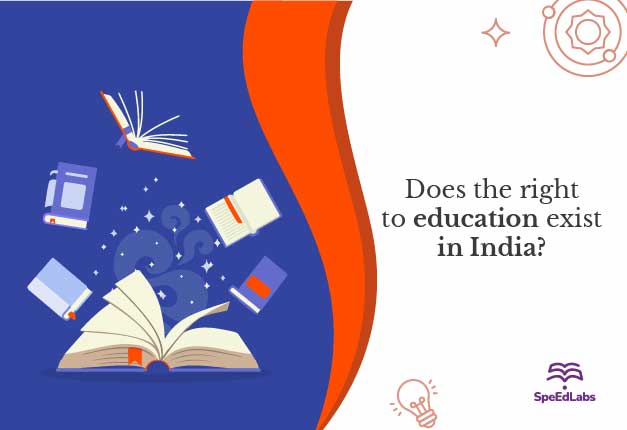“It is not beyond our power to create a world in which all children have access to a good education”, Nelson Mandela.
To live a dignified life, education is very important. Education not only makes a person more civilized but also helps them grow financially, socially as well as mentally.
Is Right to education implemented correctly?
According to the Indian constitution’s article 21A, there is a provision to provide free and compulsory education of all children in the age group of six to fourteen years as a Fundamental Right. But here a question comes: is this right really followed and implemented correctly? if yes, then up to what extent? In this blog, we will be discussing the ups and downs of the Right to Education in India, its purpose and the problems associated with it.
Earlier Right to Education was unenforceable in nature but due to judicial pronouncements, it became enforceable in nature. We all know that currently, the Corona pandemic is going on and because of this global epidemic, millions have lost their jobs and many of them have gone financially deprived of basic necessities. All such parents are trying their level best to continue with the education of children but it seems like private institutions are not in the favour of hard work and efforts of the parents.
We saw a massive shift of education from offline mode to online mode especially this year and because of the financial pressure faced by the parents, many state governments announced relaxations in fees of educational institutions. But, despite such announcements, parents continued to receive notices regarding fee deposits, pending fees etc. Some cases even faced harassment as schools enforced payment of due fees amid the pandemic.
The major irony of this entire incident is that even judiciary systems did not support these parents. The head of all judiciary systems i.e. supreme court also failed to empathize with parents and declared that parents have to pay full fees to the desired during the lockdown period and all the PIL’s that were filed against this unethical decision were subdued.
Courts stated that schools have no source of funds apart from school fees and hence parents have to deposit due fees in order to continue their child’s education. This is a flagrant violation of the Right to Education and management of schools should be subtle towards issues faced by parents and despite thinking about their own profits, they should think about the future of students as they are the building blocks of the country’s future.
GOI has taken many appreciable steps to improve standards of education in the country like for example:
- Increasing international exposure to make our country a global player, more use of e-learning and technology to make students digitally literate
- Many schemes have been implemented like Samagra Shiksha which itself constitutes Centrally funded schemes like Sarva Shiksha Abhiyan, Rashtriya Madhyamik Shiksha Abhiyan etc.
- Regular surveys are conducted with the help of the National Achievement Survey (NAS) to reveal improvement in the learning of students, especially for higher classes.
- Other steps include a better grading system, MOOCs for students, many educational tv channels etc.
As of the present scenario, if a school has done something unfair, there are few barriers to taking action against the school. The biggest of them is the impact the action would cause on the education of thousands of students of that particular school. To avoid this barrier, the establishment of Regulatory bodies for administration and teachers should be done so that students can be delineated from any kind of impact on their studies. We have to understand that RTE is not possible in an effective manner without a proper regulatory body.
Discrimination in the admission process is another havoc that guardians have to face and sometimes this discrimination is amidst classes as well. This is another case of the downfall of RTE. There is a lack of penal action against such practices and sometimes these processes are followed on a massive scale which can cause terrible results like depression in students, suicides etc. NCPCR (National and state commissions for protection of child rights, is merely in function and if it is, it is meant for advisory purposes only and real power lies with school management and administration.
There are several incidents that have reported cases in which schools have denied admission to the economically weaker section (EWS), which was allotted the school by state governments under the RTE act. Despite the RTE Act mandating a 25% reservation for students belonging to EWS, the school claimed it had no vacant seats in first grade and could only offer admission in pre-school classes.
Key Takeaways
We all know there are several hardships going on at present times. Keeping this in mind a mutual understanding should be developed between schools and parents regarding fees issues. Moreover, RTE should be strictly followed by both parties for a proper future for students.
Also published on Medium.
